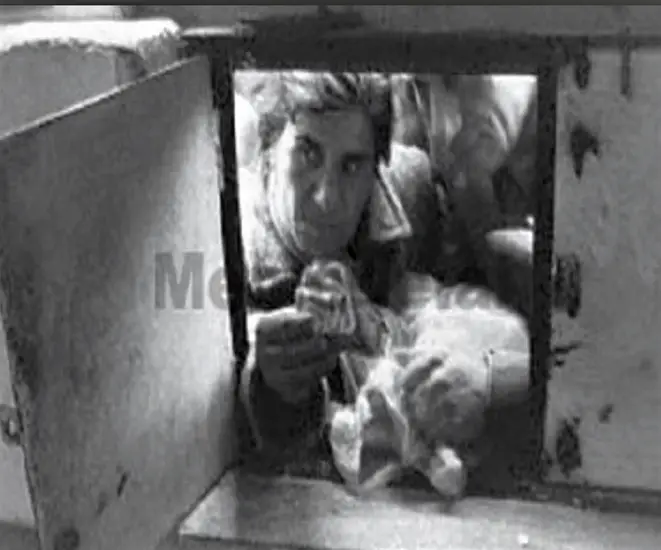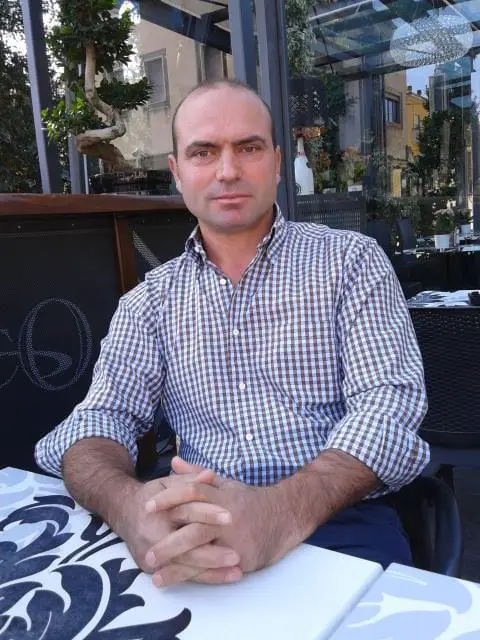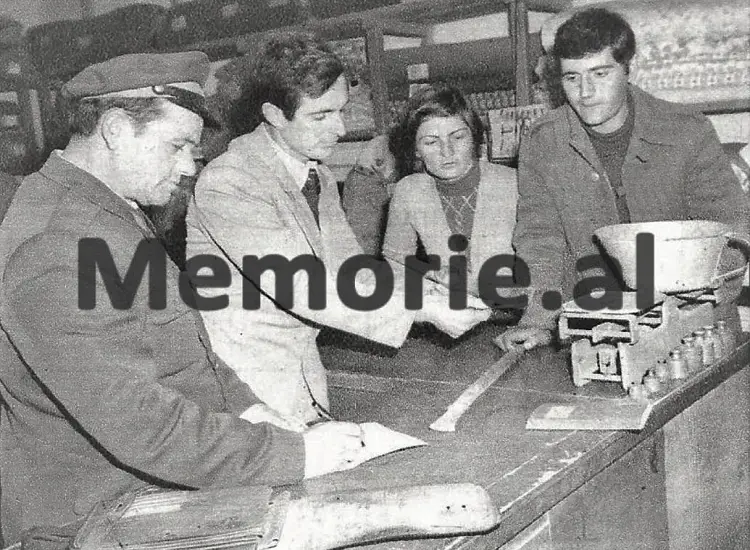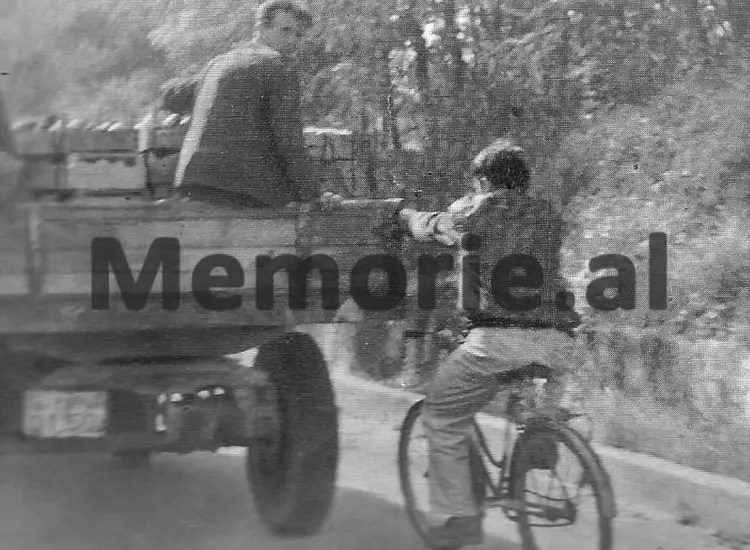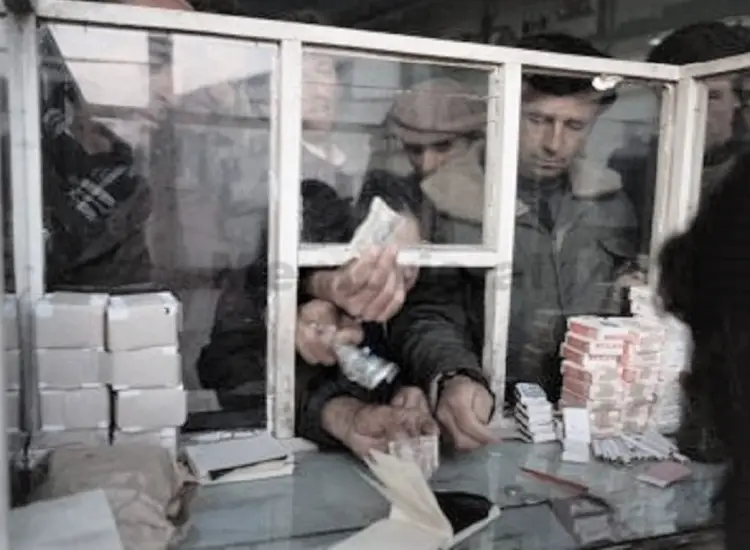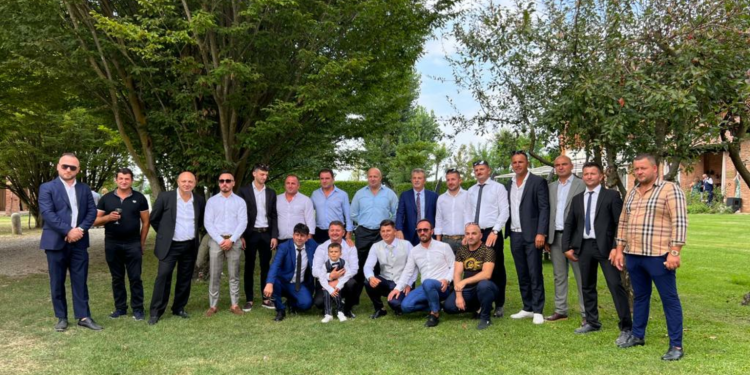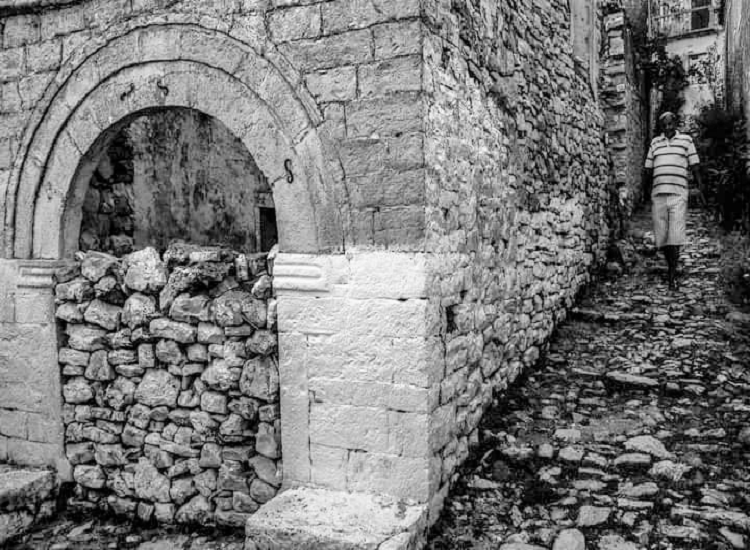By Dodë Melyshi
– Snow and…Bread! –
Memorie.al / It were the winter of ’85. The great snow that is still remembered to this day had fallen enough. And little by little, time had given way to clear sunny days and clear nights with severe frosts. It must have been Sunday morning, or maybe Saturday, when mine ordered me (normally my brother, a little older, took over these duties), dressed me well and, “I went to in Rrëshen, buy me some bread…they gave it to me”! It’s not that there was a lack of bread, but that of the village (cooperatives), with which we in the village were supplied, was of such poor quality that we needed really a big sacrifice for me…!
That winter morning, although the sun was shining brightly, it was cold. And not at all the strength of the sun that, among other things, reflected from the snow directly into the eyes and face had any effect on reducing its thickness. The road was not a road at all, but a canal-shaped alley created by pedestrian steps, along a snow thickness of more than 50 or 60 cm.
Nature, despite the cold, had flooded the earth with all its wonderful graces, which were emphasized even more by the whiteness of the sun’s rays that penetrated beyond the horizons, where they embraced a clear blue sky.
In Rrëshen, I arrived after half an hour. There was little or no movement of people on the road.
Rrësheni had two shops where bread was sold, one was called ‘Ferma’ (Agricultural Enterprise) and the other was called the city. Both were served by two saleswomen with the same name: Mrika.
At the city store, which was even closer in the distance, I did not stop at all. The seller who was there, there was no question of giving bread to the inhabitants of the village. Not only that, but she exceeded her duty, when she often went out to the sidewalk, with a bread knife in her hand (they were knives called saw knives, maybe 50 cm. long), and, in that way , threatened the small schoolchildren of the village, who often waited to buy bread through their acquaintances in the city.
That knife-machete of a shop assistant in the middle of the sidewalk (of course she didn’t mean to bleed anyone, but the action was beyond the imagination of a normal person), I never understood, neither then, nor today! Even though we are dealing with sporadic cases, it was a clear indication of how much the society of that time had degraded morally and spiritually, under that communist regime, or socialist as their propaganda proudly called it. And what a low place her ethics and consciousness had fallen! Because, just as the morality of a society can be cultivated, the opposite can also happen to it!
And where, in Mirdite?! In Mirdita, who had such a strong understanding with “bread”, with trouble and with solidarity that even a wanderer (almost without a head and without a man, in fact has a brother behind him: Gjoka), like Luk Munexha who door to door, until he passed away a few years ago, the table was laid for him to sleep, like a best and, most honored, friend. Of course, every door was opened for him!
When a bread seller, a simple bread seller (even more so, the mother of the children herself), had all that bravado, all that arrogance and prepotency, we then imagine an Operative Zone Worker, of the State Security, or a head of the Department of Public Works Interior…!
Also for this reason, I went straight to the “Ferma” store, which surprisingly I found empty, without anyone in it! “I’m sorry, we have a lot of bread rationed these days,” answered the seller. I neither begged him nor insisted, because, this other time when he was behind, he had given up.
When I left the store and made my way back, I hear a woman’s voice calling me from behind. It was a border neighbor of ours, who worked in the city pastry shop, which was right in front of the bakery, from where I had left in those minutes.
We called her Martinja e N’kolli.
Through the glass of her work, she seems to have seen my movements, entering and exiting the bakery empty-handed. And although he had understood the reason, he asked me why I had fallen in Rreshen. After receiving an answer, he told me to follow him.
We entered the store again, addressed the saleswoman (who was both a colleague and a friend at the same time), who “did everything possible to give this boy two loaves of bread, because he came from Kodër Rrësheni, through the snow”.
The farm saleswoman, after repeating the unfavorable situation she was in, offered me two loaves of bread. I gave him the money, thanked him and took the road to the island, we were very happy.
The beginning and middle of the 80s were very difficult for everyone, but for some, even more so. For purely political reasons, we lived as hermetically sealed in relation to the world, so we didn’t even expect, let alone claim, that anyone, even our closest people, would care if so-and-so’s child bought bread or not! We were even less impressed by such a thing.
For this reason, the human gesture of our neighbor, who did not remain indifferent beyond the warm windows of her work, a gesture that at first sight might seem normal and inevitable, I have never forgotten in this life.
It wasn’t about “bread” here, was it, nobody was starving (even though every time I hear the song “I giardini di marzo” by Lucio Battisti, the line “al ventuno del mese i nostri soldi erano già finiti”, it seems even, a verse that belongs to us).
Here it had to do with the message being conveyed, even more so in certain circumstances. At the age of 12, whenever I needed it, Martinja e N’kolli gave me a strong lesson in humanity.
A strong lesson in nobility. Willingly or not, in an indirect way, to draw their attention as much as my age allowed, she taught me that sensitivity is good for the world, good for man.
Because, through it, indifference and selfishness are fought. Even in the most difficult times, even in the most unworthy periods, it is the sensitive people who nurture and give messages of a ray of hope. And that decorate this world!
That winter morning of 1985, exactly the warmth of this gesture, (that is what Martinja e N’kolli did with me), along the way back, made the cold of the day more bearable and negligible. Memorie.al




